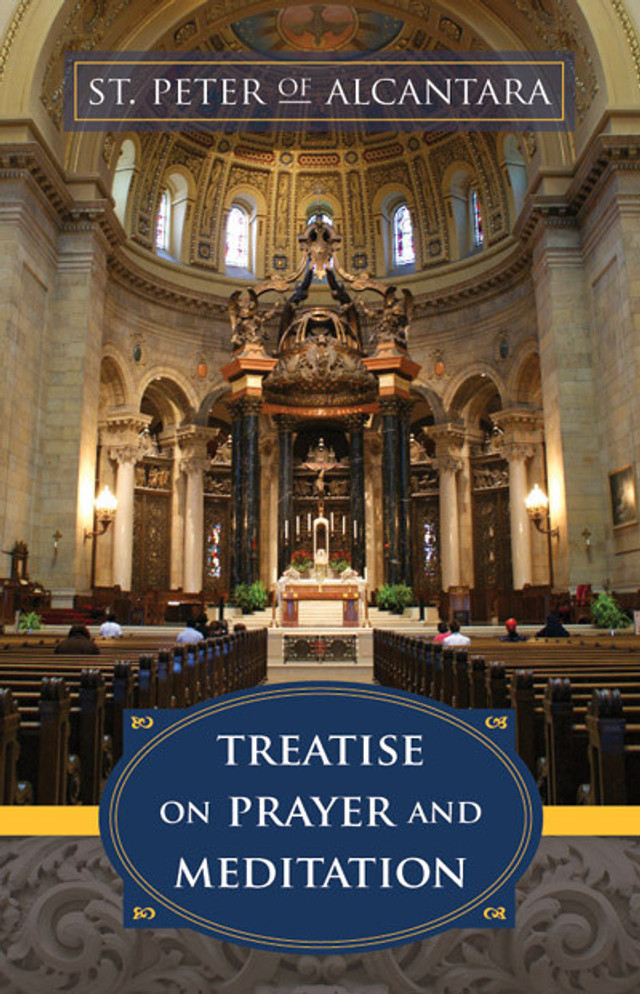Meditation and prayer are spiritual nourishment for our souls. It is important to make these spiritual exercises a daily habit if we desire to advance in holiness.
Obstacles to Meditation and Remedies to Overcome Them
It is well known that one of the greatest obstacles which hinders a man from attaining his supreme happiness and good is the evil inclination of the heart and the difficulty and disinclination experienced in doing what is right. Were it not for this, it would be a very easy thing to run in the path of virtue and to attain the end for which he was created. Hence the Apostle says: “I am delighted with the law of God, according to the inward man; but I see another law in my members, fighting against the law of my mind, and captivating me in the law of sin.” (Romans 7:22-23). Herein, then, you see the universal cause of all our evil.
To remove this distaste and difficulty and to help us in this affair, one of the most effective instruments is devotion. Devotion, as St. Thomas says (IIa, IIae, q. 82, a.I.), is nothing other than a certain promptitude and facility in well-doing, which banishes from our souls all difficulty and heaviness and makes us prompt and ready to undertake all that is good. It is a spiritual nourishment, a refreshment, a dew from Heaven, a breath wafted to us from the Holy Spirit, a supernatural affection. It so regulates, strengthens and transforms the heart of man as to give him a new taste and keenness for spiritual things, and a new distaste and horror for sensual things. Everyday experience shows us that, on emerging from profound and devout prayer, a spiritual person renews in himself all his good resolutions: there it is that he receives favors and steels himself in well-doing; there does he desire to please and love a Lord who has shown Himself so good and so gentle; there does he think of accomplishing fresh labors and of suffering and of shedding his blood for Him; there, finally, does he rejuvenate and renew all the freshness of his soul.
Advice from St. Bonaventure
If you ask me how to win this so strong and noble affection for devotion, it is the same holy doctor who replies by saying that it is by means of meditation and contemplation on divine things. This deep meditation and thought does in fact engender that affection and sentiment in the will which we call devotion, and this incites and urges us on to welldoing. Hence, this holy exercise is highly recommended by all the Saints, since it is the means for acquiring devotion. Devotion is in itself a single virtue, but it prepares us and moves us forward to all the other virtues and gives a general impulse to them all. If you would be convinced of this, see how clearly St. Bonaventure puts it in the following words:
“If you would endure with patience the adversities and miseries of this life, be a man of prayer. If you would acquire strength and courage to vanquish the temptations of the enemy, be a man of prayer. If you would crush your self-will, with all its inclinations and desires, be a man of prayer. If you would know the wiles of Satan and defend yourself against his snares, be a man of prayer. If you would live with a joyous heart and pass lightly along the road of penance and sacrifice, be a man of prayer. If you would drive away vain thoughts and cares which worry the soul like flies, be a man of prayer. If you would nourish the soul with the sap of devotion and have it always filled with good thoughts and desires, be a man of prayer. If you would strengthen and establish your heart in the way[s] of God, be a man of prayer. Finally, if you would uproot from your soul all vices and plant virtues in their place, be a man of prayer. For herein does a man receive the unction and grace of the Holy Spirit, who teaches all things. Nay more, would you mount to the summit of contemplation and enjoy the sweet embraces of the Spouse, exercise yourself in prayer, for it is the road that leads to contemplation and to the taste of what is heavenly. Do you see now how great is the strength and power of prayer? In proof of all that has been said—apart from the witness of the divine Scriptures—let that suffice for the moment as proof sufficient what we have heard and seen, what we see every day, viz., many simple persons who have achieved all we have enumerated above, and even greater, by the exercise of prayer.”
Such are the words of St. Bonaventure. What treasure could one find richer or fuller than that? Listen again to what another very religious and holy doctor says on this subject, speaking of the same virtue.
“In prayer,” he says, “the soul cleanses itself from sin, charity is nourished, faith is strengthened, hope is made secure, the spirit rejoices, the soul grows tender, and the heart is purified; truth discovers itself, temptation is overcome, sadness takes to flight, the senses are renewed, failing virtue is made good, tepidity disappears, the rust of sin is rubbed away. In it are brought forth lively flashes of heavenly desires, and in these fires rises the flame of divine love. Great are the excellences of prayer, great its privileges. The heavens open before it and unveil therein their secrets, and to it are the ears of God ever attentive.”
Let this suffice to give some idea of the fruit of this holy exercise.
ooo
This article is taken from a chapter in Treatise on Prayer and Meditation by St. Peter of Alcantara which is available from TAN Books.








